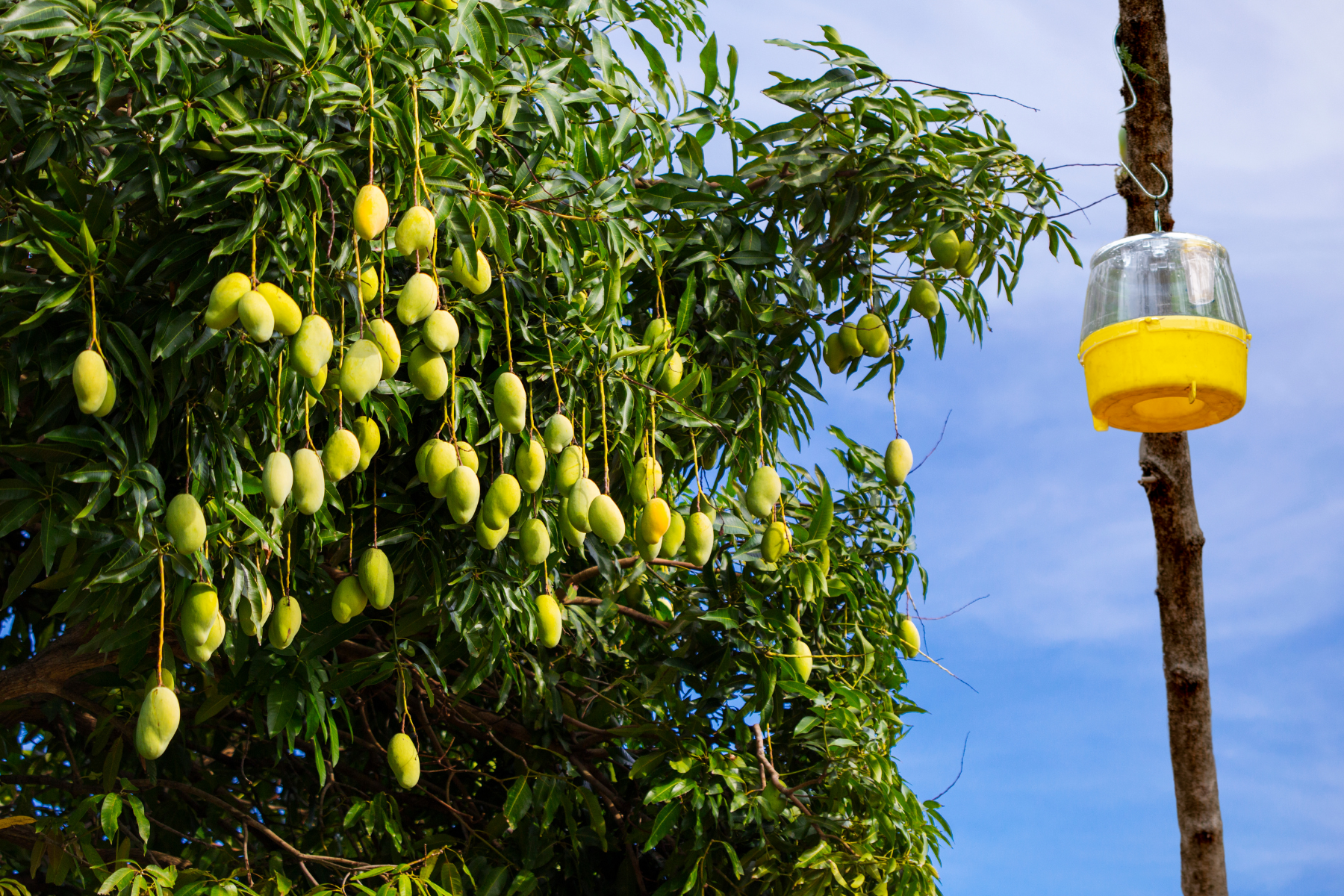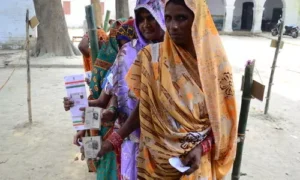Twenty-four-year-old Biju Pradhan has grown up watching male members of his Mundapota Kela tribe hold their breath and bury their heads in soil for a few coins from amused onlookers as the women of the tribe beat drums to gather a crowd for the ‘tamasha’. Painful memories of such tamasha, bordering on shame, are etched deep in his mind.
“It is something our tribe has been doing for generations to earn a living… but I don’t want to do it. It is not worth risking my life like this, even people are not interested in this public display and we hardly earn anything out of it,” Pradhan, a member of the Mundapota Kela tribal community in Sobaleya village in Odisha’s Nayagarhdistrict said.
Mundapota Kela tribe is a denotified tribe which traces its origin to the Rayalaseema region of the neighbouring Andhra Pradesh and is known for depending on risky street performances by the male members as the community’s mainstay. The tribe members are now spread across Andhra and Odisha.
A group of 20 Mundapota Kela families live on the slope of a hill at the outskirts of Sobaleya village in Odisha, devoid of any basic amenities like safe drinking water or electricity. The tribe members are struggling to switch over from performing life-threatening stunts to making brooms and mats from date palm leaves for a living.
Also Read: Odisha: Mayurbhanj’s tribal families toil in the mahua season while the middlemen flourish
“People of my age have begun making brooms out of date palms. We sell them at the weekly haat (local market) and earn better than what the elders earn at street performances… I also find this act disrespectful and dehumanising,” the 24-year-old said.
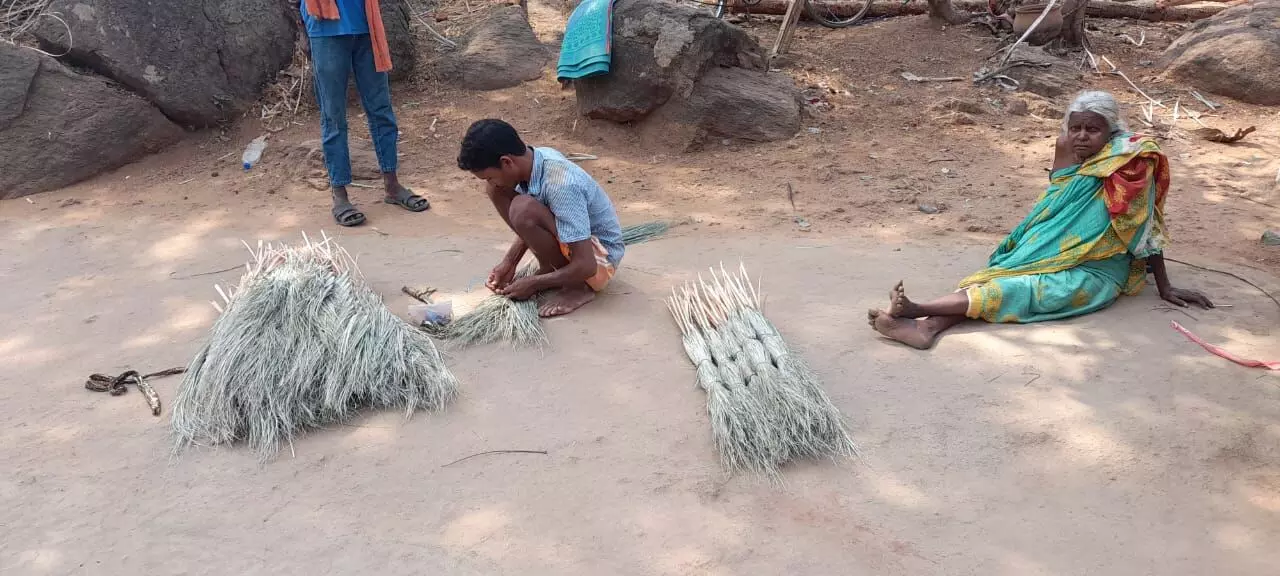
The Mundapota Kela community lives a secluded life. It is only once a week that some of these tribal residents come down from the hills to purchase salt, kerosene and cooking oil in the weekly haat at Daspalla block headquarters, which is situated around seven kilometres from the hill.
Gita Pradhan, a 53-year-old resident of the Sobalaya village, has been making these brooms and mats for a while now.
“I have been earning my living by weaving brooms and mats for the last 30 years… Like me, many Kelas (tribal people) have been sustaining their livelihoods by selling brooms and mats in the nearby markets,” she told Gaon Connection. “Very few people these days bury themselves in the soil to earn a living. There’s hardly any demand for such entertainers and people ignore our men when they do it,” she said.
It’s a date
“Date-palm tree is one of the most important plants in the nearby forests. Tribal residents use the leaves for making hand fans, brooms, mats, baskets, bags, etc,” Kunjabihari Patra, a social worker from the Daspalla block, told Gaon Connection. “These villagers collect the date-palm leaves from the nearby forest. They cut the date palm branches carefully to make sure that the branch can grow back,” she said.
“We sell our brooms at the nearby haat for twenty rupees a piece while the mat gets around hundred rupees from the buyers. It is far better to make and sell these things rather than risking our lives,” informed Gita Pradhan.
Water — a daily struggle
Whereas members of the Mundapota Kela are finding new means of earning a livelihood, they still have no access to safe drinking water. The tribal women have to often walk several kilometres a day to fetch water.
These tribal residents, primarily women and children, spend three-four hours under the scorching sun on a daily basis to fetch water from the sources of potable water in the nearby areas.
The closest pond, which is used for accessing water by these residents, is about a kilometre away from their dwellings. And often the water is highly contaminated. On such days, the women have to trek six to eight kilometres to access water.
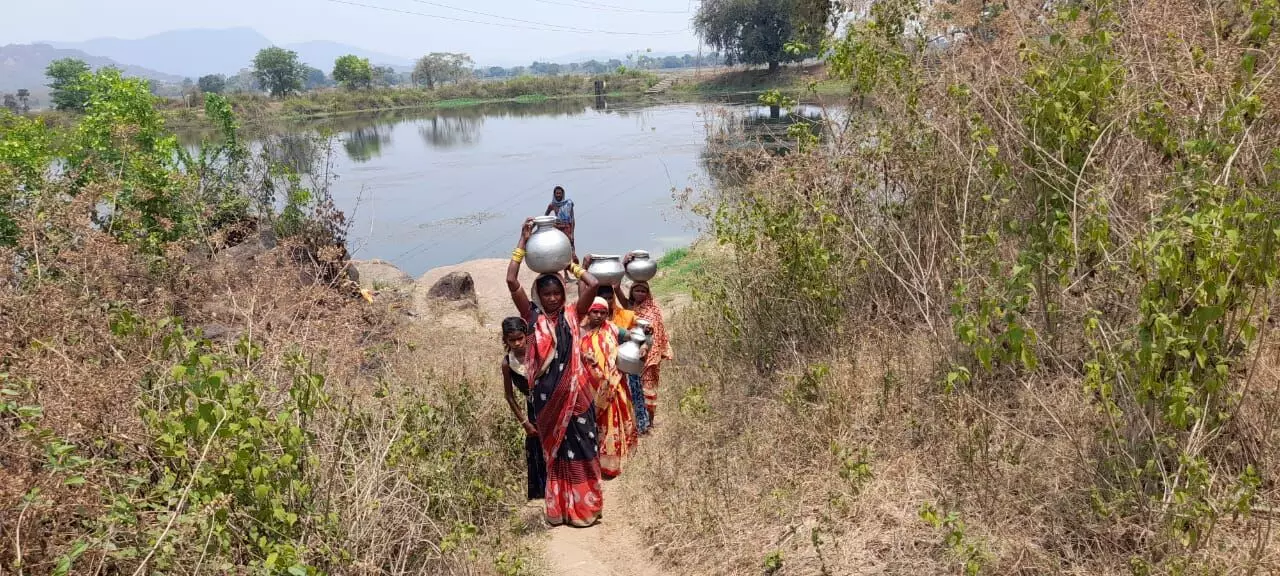
“The authorities are not working to solve the problem. The water situation here is really bad. We have no water to drink at all. We are forced to drink water from ponds and ditches. The politicians just come to us for votes but do not care to solve our problems,” Mahadev Pradhan, a 48-year-old resident from Sobaleya village complained.
The Mundapota Kela community lives a secluded life. It is only once a week that some of these tribal residents come down from the hills to purchase salt, kerosene and cooking oil in the weekly haat at Daspalla block headquarters, which is situated around seven kilometres from the hill.
“Kelas of Sobaleya village are some of the poorest tribes and inhabit the hills. The geographical distance from the main towns is another factor inhibiting their development,” Biswajit Mohanty, an environmentalist and the secretary of Wildlife Society of Odisha, told Gaon Connection. “Their houses on the hills are without proper roads and facilities like electricity, drinking water and primary health centres have not been provided to these tribal residents yet,” he said.
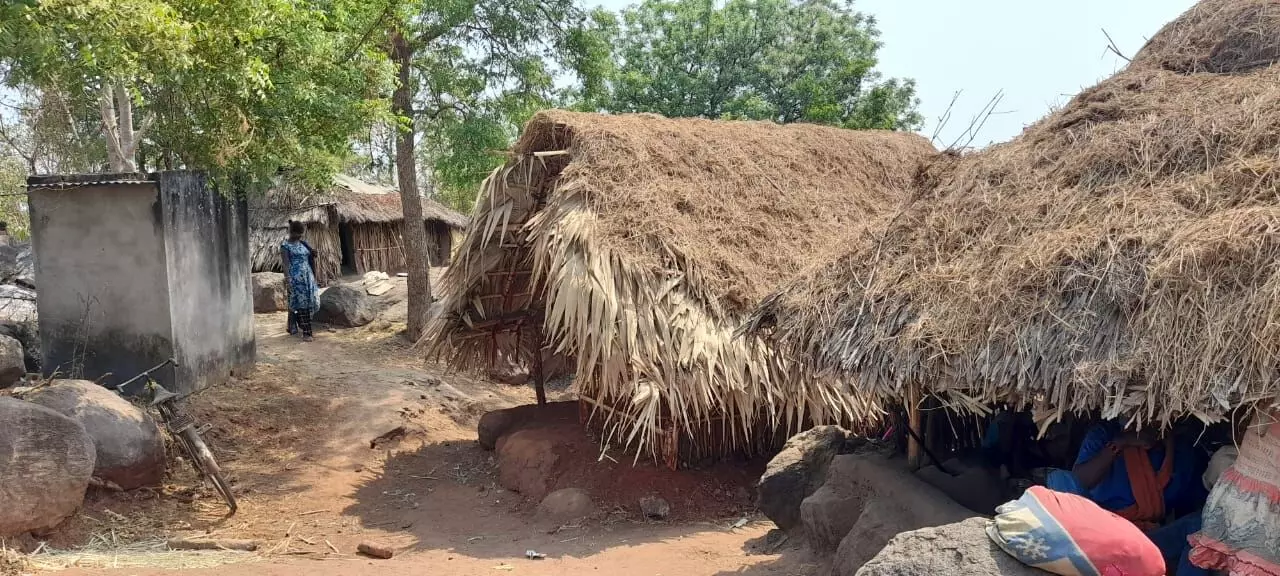
When Gaon Connection contacted the Block Development Officer (BDO) of Daspalla block, the official stated that efforts to provide relief to these marginalised communities were underway.
“The authorities have been providing the old age pension, widow pension, rice-under-one-rupee scheme to Mundapota Kelas. The community is also being covered under other beneficial works of the government. We will soon provide them drinking water by digging tube-wells near the village,” Biswaranjan Biswas told Gaon Connection.







